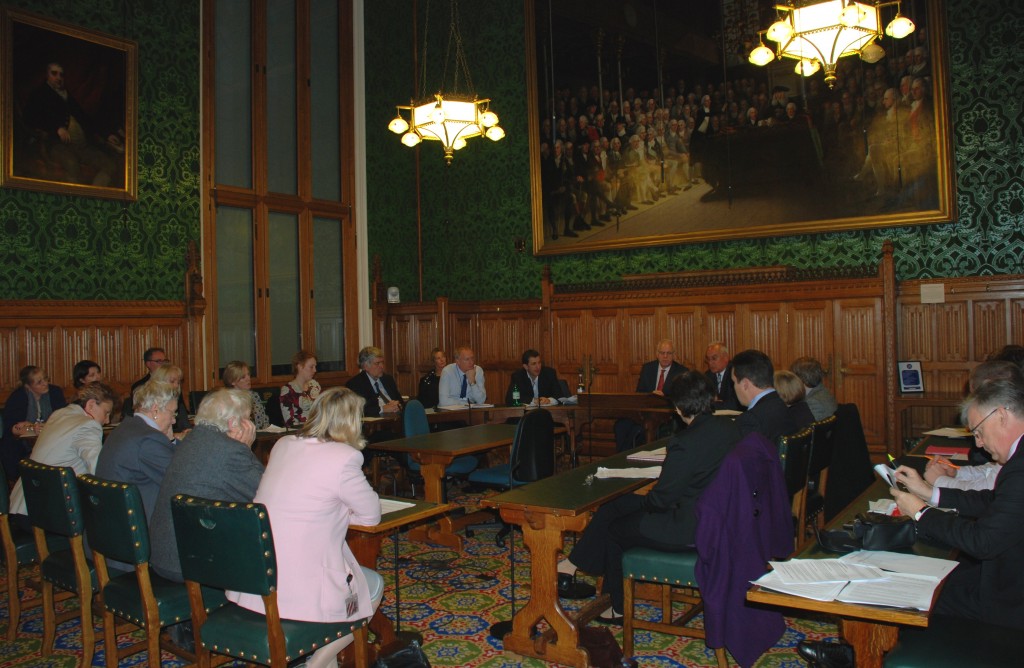On Tuesday 12 November 2013, the All Party-Parliamentary Group for Education was addressed by Sir Michael Wilshaw, Her Majesty’s Chief Inspector of Education, Children’s Services and Schools.
Introduced by the APPG’s Co-Chair, Nic Dakin MP, Sir Michael addressed those in attendance about the recent work of and changes made to Ofsted since he took up his post. He remarked on several improvements seen in education provision, including 78% of schools have been judged good or better this year compared to 70% last year and 60% five years ago. Sir Michael pointed to greater accountability as the key driver for improvement, and hailed Ofsted’s role in that process. He welcomed the increased autonomy being given to schools but believes that it is still the place of government to decide the content of the national curriculum.
Sir Michael noted that the poorest performing areas in England are often the most deprived, but that ‘poverty of expectation’ is the main problem, rather than a lack of ability among poorer children. Children from white, working class, low income families are the main group needing more help, through the introduction of a national strategy. He also reported that a lack of accountability in Wales has led to a decline in standards there.
Sir Michael particularly highlighted the importance of ensuring that good teachers are placed in poorly performing schools, adding that “without better teaching, outcomes will not improve.”
He went on to point to the lessons learnt from the experience of London. In the 1980s, London schools were very well funded but poorly performing. Since then the capital has seen dramatic improvements in standards.
“The lesson from London is that it can be done. The real problem,” said Wilshaw, “was poverty of expectation.”
Sir Michael’s presentation was followed by a lively question and answer session, during which he was quizzed by several MPs, Peers and stakeholders from across the education world.
A range of issues were raised and debated, including the difference between social mobility in urban and rural areas, a possible requirement for employability to be tested in Ofsted inspections, the inspection of child-minding agencies, and the impact of greater freedoms for schools.
Further discussion took place regarding the changed framework for Ofsted inspections, how schools know how to develop and improve following inspection and the variations in improvement between primary and secondary education.
Ofsted want to see a majority of teaching to be outstanding, in outstanding schools, Sir Michael remarked. Results for children are the most important thing, and Ofsted do not have a preferred method of teaching to achieve those, he explained. Improvements have been seen across primary and secondary schools, but independent schools could also get more involved in improving state schools further, beyond the current piecemeal approach they have taken. Ofsted can act as a broker encouraging closer cooperation among schools, particularly between these sectors.
Questions were also asked on the role of the independent sector in supporting national standards, inspections of children’s services and safeguarding children, the role of inspectors in supporting a school, and how to ensure that inspectors are up to date with the technology used in education.
Sir Michael also outlined his belief that inspections should be about improvement, and that Ofsted was well placed to advise on best practice. He acknowledged that technology empowers teachers and has improved how they teach.
During the meeting there were contributions from MPs including Ben Gummer, Gisela Stuart and Robert Wilson. Baroness Howe, Baroness Walmsley and Lady Warnock also raised concerns and questions, and the Group’s Vice Chair, Baroness Perry gave a vote of thanks at the end of the meeting.
Commenting on the meeting, Sir Michael said, “I was delighted to attend this meeting of the APPG for Education, an important forum through which politicians can debate key aspects of education policy. The opportunity to discuss with MPs and peers the role which Ofsted has to play in continued school improvement was a welcome one”.
Nic Dakin MP, the Group’s Co-Chairman, said, “Sir Michael’s presentation stimulated an interesting and forthright discussion about how we can best improve educational provision. The APPG for Education provides an excellent opportunity for parliamentarians to discuss, debate and examine all aspects of educational policy, and there are few areas which are more important than the work of Ofsted.”

